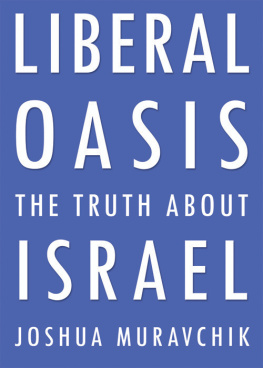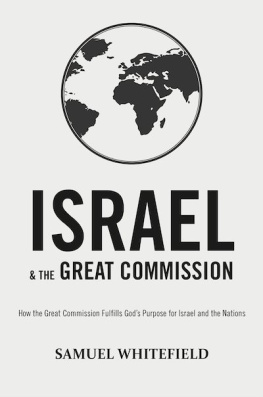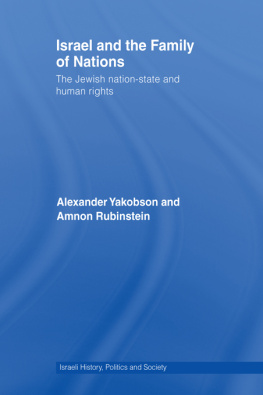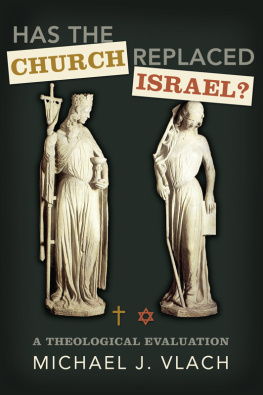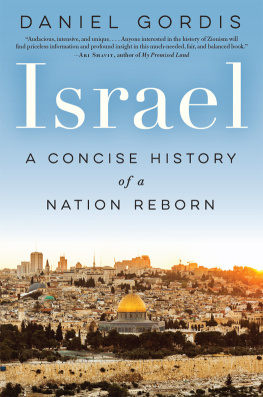Liberal Oasis is a companion to:
Making David Into Goliath
How the World Turned Against Israel
by Joshua Muravchik
Israel was once hailed as a bastion of humane values surrounded by repression and cruelty. Now it is scorned as the arch pariah of the international community. In a devastating dissection of intellectual tropes and craven appeasement parading as high principle, Making David Into Goliath is the fascinating story of how enlightened opinion turned against the Jewish state.
Coming Summer 2014
Pre-orderMaking David Into Goliath: How the World Turned Against Israel
Liberal Oasis: The Truth About Israel
Little, But Not So Shitty
In 2001, the French ambassador to England was heard to deride that shitty little country, Israel. Israel is indeed little, ranking 153rd among the worlds countries in geographic size. But shitty? Let us compare it with, say, France whose government and press rallied round the outspoken diplomat.
Because the French so pride themselves on la gloire, consider first warfare, far from a noble human endeavor but sometimes a necessary one. Israel defeated the combined Arab armies in 1948, 1967 and 1973 and various states or guerrilla forces each time it has faced them. France, on the other hand, was bailed out by the United States in World War One, surrendered in World War Two, and was defeated by the guerrillas of the Viet Minh in Vietnam and the FLN in Algeria. It was on the winning side in the Cold War, but through no fault of its own, having largely opted out of that struggle by withdrawing from NATO and declaring its nuclear force to be aimed equally in all directions.
In economics, France, one of the first industrial countries, is wealthier than Israel, a recently-developed country, but not by much and probably not for long. According to the International Monetary Funds World Economic Outlook Database of October 2013, Israels per capita income, measured in Purchasing Power Parities, the most reliable tool for country comparisons, reached 98 percent of that of France, whereas only twenty years before Israels had been only 80 percent that of France. All such data come with disclaimers about their exactitude, but the trend line is unmistakable. It seems only a matter of years, and not too many, before Israel passes France in this respect.
Already, Israel has pulled ahead in scores on the UNs Human Development Index which attempts to measure standards of living in a more concrete way than money. According to the 2012 report of the UN Human Development Program, France ranks 20th among the worlds nations, behind Israel at 16th. Israels Index score is .900; France scores .893. This index is made up of three areas of measurement: health, education, and income. Since France is still ahead in income, this means that Israel has already passed it in broad measures of health and education.
Because France is not a little countryits population is about 8-and-a-half times as large as Israelsits accomplishments in most things that are countable surpass those of Israel. But if you look at these same things on a per capita basis, Israel comes out ahead virtually every time.
Take patents, for example, the simplest measure of inventiveness. Per person, Israel is already more than three times ahead of France in the number of U.S. patents secured each year. (The U.S. patent is the world standard.) But so much more fertile are Israeli than French inventors that Israel is on a trajectory to surpass France even in absolute numbers. In 1996, French companies and inventors registered six times as many patents in the U.S. as did Israels. That already put Israel somewhat ahead, per capita. Since then, however, the gap has narrowed steadily. In the late 1990s, France was ahead by a ratio of five-to-one; in the early 2000s by four-to-one; in the middle of that decade by three-to-one. In 2009, Frances inventors outdid Israels by only 2-and-a- half to one. In the next three years the ratio continued to drop gradually toward 2-to-1. Astonishingly, this trend suggests that the day when the 7 million-odd Israelis pull down more patents than the 60-odd million Frenchmen draws near. Sacrebleu!
Likewise, per capita, Israel leads France in Nobel prizes, in the number of books published each year and scientific papers published and cited, and in most any other measure of excellence you can think of. There were, as of 2013, almost as many Israelis (39) as French (47) with the title of grand master in chess.
I am of course tweaking the French, a joy that is hard to resist, but the deeper point I want to make is quite serious and has nothing to do with France. Rather it is about Israel. Although it is little and young and has had to fight to survive every moment since its gestation, Israel has become one of the worlds greatest countries. I use the word great, not to suggest its military might, although Israels is formidable, nor its economic accomplishments which are also oustanding. More important, however, Israels greatness lies in its accomplishments in all fields of humane values, the very same values, ironically, that Israels liberal and leftist detractors claim to hold dear.
These accomplishments are impressive, as I have been suggesting, even in comparison with France which, despite my tweaks, is one of the worlds great civilizations and was the incubator of many of these self-same noble values. France aside, Israels record on a humanitarian scale is downright overwhelming when seen in comparison to those of its adversaries, whether we speak of the Palestinians or the Arabs or the Muslim world in its entirety.
Libert
The heritage of the French Revolution has shaped political discourse for more than two centuries. The ideological code of Left to Right was derived from the seating of factions in the revolutionary Assemble Nationale, and the touchstone of the Left, then and ever since, has been the slogan, Libert, galit, Fraternit, which remains the national motto of France (and Haiti). Let us see how Israel stacks up to these ideals.
The term libert encompasses freedom and democracy, which remain the most basic and powerful measures of respect for human dignity. Happily, thanks to Freedom House, this is also a realm for which we have exhaustive and reliable quantitative measurements.
Freedom House provides separate assessments of freedom and democracy. What it calls electoral democracy is simply a yes or no variable based on the very straightforward question of whether the government is chosen in free, fair, and open elections or not. Altogether, in 2013 Freedom House rated 118, or sixty-one percent, of the worlds countries as electoral democracies.
Elections, important though they are, do not in themselves make a country free. There are countries, for example, with elected governments but abridgements of press freedom or where courts do not operate without government interference or where endemic corruption vitiates government accountability. Hence, Freedom House also rates each country each year on a scale of freedom that is much more textured. It scores countries numerically, by half-numbers, i.e., 1, 1.5, 2, 2.5, etc., with 1 being the best possible score and 7 being the worst. Countries that score from 1 to 2.5 are rated free. Those in the range from 3 to 5 are partly free. A score anywhere from 5.5 to 7 earns a country the label, not free.
How does Israel measure up? And what about its enemies?
Israel, unsurprisingly, rates as an electoral democracy. The Arabs? There are 22 members of the Arab League21 countries plus the Palestinian Authority. Although there have been free elections in Iraq, Lebanon, and the Palestinian Authority, it is not clear that those who won the elections rule the country, so none has yet met Freedom Houses standard of electoral democracy. The only member of the Arab League that Freedom House has called a democracy for several years running is the Comoros, four islands off the eastern coast of Africa with a combined population of 750,000. In its 2013 report Freedom House added Tunisia and Libya.

